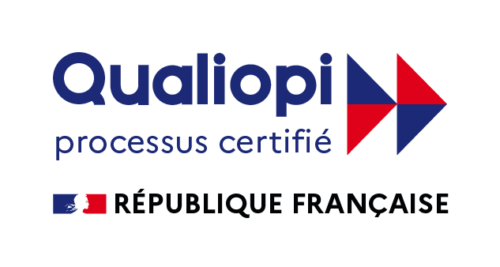The 10 rules on how to avoid being a Positive Leader … or, how to face the threat of the spread of Positive Leadership in organisations?

What is coming to light is a resurgence of the “positive”, as well as the clear limitations of the concept of wellbeing at work, which consists of open plan space, a few yoga sessions between meetings, a table football and a cosy surf atmosphere at the cafeteria. They would almost make the trap a much greater danger, i.e. the major risks of the spread of a form of Positive Leadership in organisations.
For years having been both a victim and an informed observer of the negative effects of Positive Leadership, I would like to be a cautionary voice. I feel it is essential to share with you the 10 fundamental rules to understand how to avoid becoming a Positive Leader!
How did we get to this point?
After the First World War, the first studies in the scientific management of work began to appear from Taylor & Gilbreth’s research. These were subsequently confirmed by Elton Mayo’s Hawthorne studies. The idea emerged that working conditions and the attitude of the manager can have a positive impact on performance. Since the 2000’s, the advance of research in Positive Organisational Psychology (POP) and the most recent discoveries in Neuroscience on the reward circuit, the impact of emotions on our behaviour, or factors of resilience for example , have in turn demonstrated the proven, harmful and incalculable effects of Positive Leadership in organisations. This growing spread of Positive Leadership is reflected in at least three disturbing phenomena illustrated by behaviours, consisting of:
-
- Creating a professional environment which promotes well-being and performance
- Developing co-operation and giving meaning
- Encouraging autonomy, initiative and innovation
The source of the problem
Indeed, the recent Opinion Way survey reveals that the French now have the lowest level of attachment to their company (62%) since 2003. The Harvard/MIT study for its part repeats in a loop that happy employees are half as likely to be sick, 6 times less likely to be absent, 9 times more loyal, 31% more productive and 55% more creative. The Ifop/Monster study tells us that the first factor in promoting a good atmosphere at work would be a benevolent hierarchy which is open to dialogue.
Thus, to believe the followers of Positive Leadership, it seems that "some weak signals" justify their unspeakable goal: to ensure that work offers the opportunity to give the best of oneself (optimal performance) and that it is at the same time (according to the new jargon), a source of individual and collective fulfilment.
Evidence of the Harmfulness of Positive Leadership
Research on the subject conducted over more than thirty years by Kim Cameron, initiator and leader of the current Positive Organisational Scholarship (POS), should inspire in us the greatest suspicion. Indeed, qualitative and quantitative surveys support this. If we still harboured any doubts about the risks it represents for an organisation, Positive Leadership results in exceptional performance in terms of productivity, quality, innovation and profitability.
In addition, it is characterised by a vitality and wellbeing felt and expressed by employees in the workplace. This is demonstrated by Jacques Lecomte in his book “Les entreprises humanistes” (Humanist Companies) through hundreds of studies on the beneficial impact of values as futile as benevolence, solidarity or joy at work. The case of Southwest Airlines is amongst his examples.
After September 11th 2001, the aviation industry found itself in an unprecedented crisis with 20% reduction in air traffic and all companies laying off on average 16% of their staff. With one exception: Southwest Airlines. Losing a million dollars a day but faithful to its policy of never firing whatever the economic conditions, Herb Kelleher, co-founder and CEO of the company, decided to stay true to one of the key values of the company: to take care of his co-workers. The gamble is paying off because Southwest Airlines is the first company to have exceptional financial results (see below) after the crisis. In addition, his management's commitment to preserving jobs at all costs is fuelled by strong feelings of loyalty, security and trust among employees who are more committed than ever to defending the values of their company.
What are the signs to quickly identify Positive Leaders to prevent them from harming?
In an organisational world where cynicism and relativism are all too often the alpha and omega of interaction with others, Positive Leaders are masters in the art of camouflage. However, some of their faults and trends should allow us to identify them and prevent them from committing the irreparable, regardless of their role in the company. As such, my experience of thirty years of corporate life, then coach and consultant, has led me to identify a number of features common to these Positive Leaders. For example:
- Trust in the resources of their co-workers
- Empathy and the ability to muster their emotions and those of others
- Positive communication and the ability to create a positive environment
- Listening, objectivity, benevolence and gratitude
- The ability to reveal a "positive meaning" for the organisation
How to avoid being struck by the Positive Leadership Syndrome yourself?
Thus, faced with the crucial challenge of anticipating and preventing a Positive Leadership pandemic, constant vigilance is of course recommended. Some basic tips and practices should allow everyo
ne to go through this bad patch hoping for the return of the good old days of Negative Leadership (autocratic, narcissistic, omniscient and omnipotent, arbitrary, cold, willing to do anything to win). Fortunately the worst is never guaranteed and adopting these 10 rules as soon as possible should definitely save you from positive contamination, as well as those lucky enough to work for or with you.
1) Renounce any form of humility
“Humility is the absence of pride” (Voltaire)
This is certainly a good starting point. Leadership Servant, for example, advocated by Robert K. Greenleaf aims for the Leader to "serve" the collective through selfless, empathic and socially responsible long-term behaviour. Thus, a Leader’s humility can steer him to encourage the success of his co-workers, even admitting that they can have better ideas than he. So, we really can surpass limits!
2) Renounce being exemplary and having integrity
“The greatness of a man is not in how much wealth he acquires, but in his integrity and his ability to affect those around him positively” (Bob Marley)
What made Enron leaders, Lehman Brothers, Parmalat, and more recently Volkswagen, so successful, was pushing both their clients and their employees to their ethical limits. In their classification of the large companies' values the newspaper Les Echos puts Integrity in 4th place. Curiously, being Exemplary comes in last place (50th), whereas according to V. Petit and M. Delanghe’s joint study EDHEC Business School/Hay Group, this is precisely what French executives seek from their managers above everything else, along with authenticity (the ability to act in accordance with one's values).
3) Reinforce your ability of "non-listening"
"If you want to know a people, you have to listen to their music" (Plato)
This is indeed the best way to develop a good managerial hubris syndrome, thanks to the development of arrogance, narcissism and megalomania amongst others. As we are aware, this systematically establishes the basis of a good atmosphere at work. One conducive to trust, to the expression of Collective Intelligence and therefore to the ability to innovate.
4) Banish gratitude
"All our discontents about what we want appeared to me to spring from the want of thankfulness for what we have.” (Daniel Defoe)
First of all, it is important to note that thanking employees (and still more so publicly) goes against their basic need for recognition. Thus, by appreciating the work accomplished and the efforts made, the Positive Leader could inadvertently stimulate in his co-workers too much dopamine, which neurobiologists tell us is the hormone of well-being. It is also to this distrust which Professor Shawn Accor refers when he tells us in his book The Happiness Advantage that "the quality of the relationship between a manager and his co-workers is one of the first factors of productivity of the latter and of his attachment to the company".
5) Avoid benevolence
“Hatred does not cease by hatred, but only by love; this is the eternal rule” (Buddha)
Often confused with complacency in the business world, benevolence, develops self-esteem, confidence and reinforces the desire to learn. Numerous studies attest to its positive impact on the workplace climate, co-operation and the ability to take risks. It is true that as with many other qualities, we can easily bestow benevolence in a world which is more competitive than ever, to attract and keep talent in one’s organisation.
6) Do not build on strengths
"The organisation is a machine to maximise human strength." (Peter Drucker)
The classic approach of tackling the problem, deficiency and the deficit, is sufficiently proven and if 70% of organisational transformations fail with these methods, it still means that it works in 30% of cases! This is not nothing in a world where the weight of facts & figures is often the ultimate judge of any managerial decision that must be adorned with the virtues of our good old Cartesian logic and sacrosanct Excel and Powerpoint spreadsheets whose presentations follow one another in endless meetings, often off-site.
7) Refuse to give meaning
"Meaning at work is often never as essential as when it is missing. »(Edgar Morin)
For Dan Pink, a motivational specialist and author of the bestselling Drive, finding meaning in one's professional activity is ultimately only one of the three main factors, along with autonomy and mastery of motivation at work. In addition, we are not so immune to "giving meaning" that it can actually work. This was also the strategy employed by Steve Jobs in 1983 when he tried to poach John Sculley, who had a brilliant career at PepsiCo, to appoint him the new CEO of Apple. Thus, it is said that Jobs asked him: "Do you want to spend the rest of your life selling sweet water or do you want to have a chance to change the world?" The rest is history, indeed a decision to contribute to the phenomenal success of the company that is peachy.
8) Avoid messages of optimism and hope
"Pessimism comes from temperament, optimism comes from volition." (Alain)
Undoubtedly, when faced with a disruptive competitor in his market, a predatory investment fund or a major crisis related to a defective product marketed, a leader who is blissfully optimistic about the challenges of his company would surely not remain so very long. But even without going that far, one can imagine for a moment that conveying optimism as the ability of viewing difficulties as opportunities for one’s organisation, is to learn and innovate. Indeed can it be one of the qualities anticipated, or even expected of him by his co-workers?
9) Fight against any form of resilience
“When we are no longer able to change a situation, we are challenged to change ourselves.” (Viktor Frankl)
Ultimately you will ask me “What could a company stand to gain by promoting the resilience of its employees?” Because in the end from a psychology point of view, resilience is the ability not only to face up to difficulties but to go beyond, to transcend them. Is it useful in an increasingly professional environment Volatile, Uncertain, Complex and Ambiguous (VUCA), to use today’s jargon? Answering this question is all the more crucial when we know that far from being a determinate trait set in stone, resilience is a skill that can be developed and which promotes both performance and fulfilment, professionally and personally.
10) Eliminate positive emotions
"The fundamental difference between emotion and reason is that emotion leads to action, while reason leads to conclusions." (Donald Cane)
Research on emotional contagion has shown us that people "catch" the emotions of others, so all the more reason to be aware of the risks of "positive contamination"! In addition, for Barbara Fredrickson, psychologist and scientist specialising in emotions, positive emotions broaden our repertoire of thinking and acting abilities and contribute to the sustainable building of our personal resources, whether physical, intellectual, social or psychological. Her extensive research in the field even shows that cultivating positive emotions could lead us to:
- Developing self-confidence, flexibility and creativity
- Being more attentive, more efficient and working better in a team
- Increasing resistance to stress and maintaining health in general
Finally, the beliefs and artefacts (buildings, dress code, logo), as well as the emotions expressed and felt in an organisation ultimately constitute its “culture" and therefore its allure. This is true for customers as well as for employees in the context of the symmetry of attention at the heart of the major topics of the moment, namely the Customer Experience and the Co-Worker Experience.
In these conditions, is the gamble of the "positive" really sensible for a Leader today? For my part, as you will have understood, I chose which type of contagion I wanted to contribute.
And what about you?






